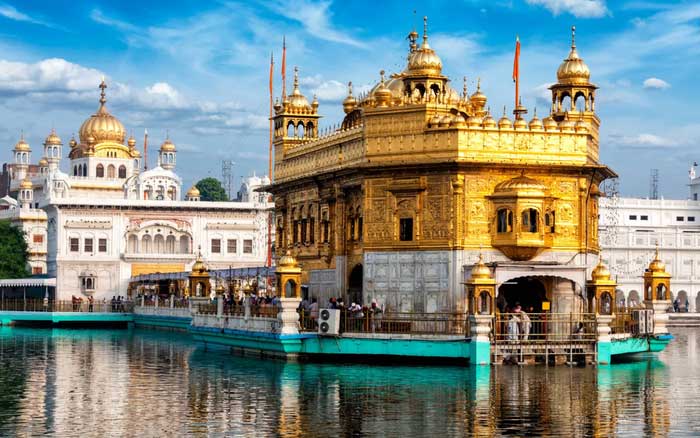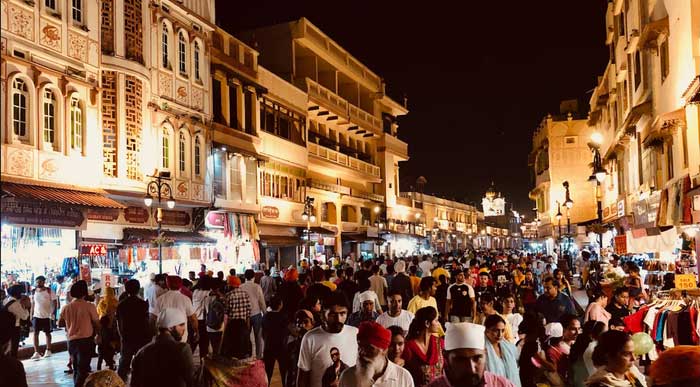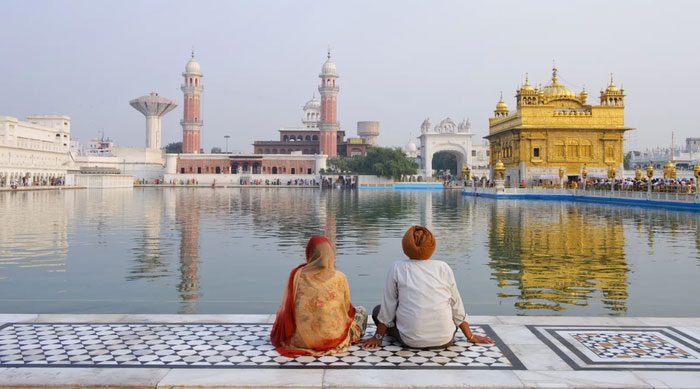The city of Amritsar in northern India is known for its spirit of generosity, kindness, and selflessness.
Amritsar is a city in northern India with a population of 2 million. It is famous for many things: delicious cuisine, a historic old town, and the Golden Temple – a majestic sacred site in Sikhism.
Amritsar was founded in the 16th century by a Sikh Guru and is located in the Punjab region – the birthplace of Sikhism. This religion is renowned for its seva tradition – selfless service to humanity. Sikhs around the world perform seva in gurudwaras (Sikh temples), which is expressed through charitable actions like cleaning floors, serving free meals, and maintaining order and reverence in the temple.

Sikhs around the world engage in seva activities, such as cleaning the sacred pool of the Golden Temple.
Overall, seva is about doing good, giving without expecting anything in return. It revolves around generosity and selflessness. It is also a way of life, a form of spiritual practice for its followers.
“Another name for seva is love,” says Abhinandan Chaudhary, 23, who has been participating in seva activities with his family since he was 8 years old.
The generosity of Sikhs is palpable anywhere in the world. During the Covid-19 pandemic, Sikh volunteers in a gurudwara in England delivered thousands of meals each day to National Health Service workers. In the United States, Sikhs also prepared hundreds of thousands of free meals. In emergency situations like hurricanes in Canada or tornadoes in New Zealand, the Sikh community comes together to assist those in need. In April 2021, as Covid-19 devastated families across India, the Sikh community even helped provide oxygen tanks and essential medical supplies.
In Amritsar, the birthplace of Sikhism, the practice of seva reaches new heights. People across India know that no one in Amritsar goes to bed hungry because hot meals are always served at the Golden Temple.
The Golden Temple has langar – the largest kitchen in the world, serving 100,000 people daily, seven days a week, with no discrimination.

The communal kitchen of the Golden Temple – serving hot meals to 100,000 people every day.
Michelin-starred chef Vikas Khanna states, “I was born and raised in Amritsar, and we have a massive communal kitchen, enough to serve the entire city.”
A strict operational process
Like all gurudwaras, the Golden Temple operates in a systematic and highly disciplined manner. Here, a team of volunteers assists in serving basic meals such as lentils, chapattis (flatbread), green bean stew, and yogurt, all served on stainless steel plates.

Golden Temple.
People sit cross-legged on the floor in large halls that can accommodate around 200 individuals. There are all kinds of people here: men and women, old and young, rich and poor. Some ask for extra food, while others finish their plates and leave immediately. Every 15 minutes, volunteers clean up and prepare for the next meal. It is an endless cycle.
Generosity and kindness seem to be present everywhere in the city of Amritsar, not just in sacred areas but even on the streets. As soon as someone sees you looking confused while lost, they are eager to approach and help. While walking down the street at night, you may encounter passersby reminding you to be cautious with your bag. Some express special affection for foreigners and may even offer their seats. A warm look and a smile are often enough for strangers to sit together for tea and discuss life.

Amritsar was founded in the 16th century by a Sikh Guru. It has now become a spiritual center for Sikhism.
Rahat Sharma, who was born and raised here, shares, “Growing up in Amritsar, I felt like I was living in a large community. People care about each other, including Sikhs and Hindus, the two predominant faiths in the city, living together with love and harmony, despite certain political disagreements.”
It is no surprise that this city is always full of energy, as Amritsar is regarded as a city of divinity and life. Street foods like kulchas (flatbread) and chole (chickpeas stew), phirni (rice pudding) served in traditional clay pots, and glasses of buttermilk are dishes that many Indians dream of. The beautiful old town, narrow winding alleys, and vibrant bustling markets seem to have been forgotten by time.

Sikhism emphasizes doing good and helping others.
In the past, Amritsar experienced many tragic events due to war. Many innocent Sikhs lost their lives in massacres. Sikhs continue to hold the memory of these events, but they recount them not to incite hatred but to honor the contributions and legacy of their predecessors.
It is even more admirable to know that a community that has suffered so much is willing to give and has learned to accept. According to Khanna, these characteristics are essential to being a Sikh. They are not only friendly but also open to everyone, regardless of faith or belief.


















































